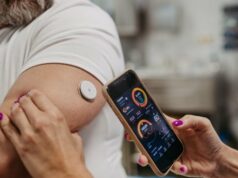
An Australian politician has written in praise of the UK’s new approaches to treating type 2 diabetes that includes low carb and very low calorie dietary interventions.
Janine Freeman, a member of the Parliament of Western Australia and chair of its Parliamentary Education and Health Standing Committee, visited the UK in late January and early February to learn about good practice in preventing and managing the condition.
She said her committee had “serious concerns that the management of type 2 diabetes is poorly understood in the community – in particular that it is often simply accepted as a ‘part of ageing’ or dismissed as ‘beyond my control’.”
But, in a review of her visit in an article on the BMJ Blogs website, she praised the UK’s change in mindset around management of the condition, saying she was impressed by the shift towards management approaches that can induce remission of the condition. Remission of type 2 diabetes is when healthy blood glucose levels are achieved without the need for blood glucose lowering medication.
Writing in the blog, she said: “With over one million Australians currently living with type 2 diabetes and more than 100,000 Australians developing diabetes in the past year, the shift in thinking from medication to treatment that can bring about remission is a welcome development. Equipping our local doctors with knowledge around patient care and treatment options would assist patients and benefit both their health and the health of our economy.”
During the trip, the delegation met with Diabetes Digital Media (DDM) duo Arjun Panesar, CEO and Head of AI, and Charlotte Summers, Chief Operating Officer, as well as GP David Unwin, at his surgery in Southport.
In 2016, Dr Unwin was awarded NHS Innovator of the Year for published research into a low carb diet as an alternative to drug therapy in type 2 diabetes. His GP practice spends £40,000 per year less than expected on drugs for the condition, while at the same time helping up to 50 per cent of people get their diabetes into medication-free remission by dramatically cutting back on both dietary sugar and starchy carbohydrates.
Dr Unwin has already been in touch with the committee, with some Australian GPs having already adopted a low carb approach.
Speaking about the visit, Ms Freeman recalled: “The committee visited Unwin’s surgery where we were privileged to meet three of his patients. They outlined how thrilled they were to be able to take greater control of their type 2 diabetes through adopting a low carbohydrate diet and making lifestyle changes. Many of his patients have been able to discontinue medication, saving the public health system thousands of pounds.”
At a meeting with Professor Roy Taylor, from Newcastle University, the Australians learned about the findings from the DiRECT study, which is demonstrating type 2 diabetes remission through a very low calorie diet followed by an intensive weight maintenance phase. The team also visited Leicester Diabetes Centre, an international centre of excellence in type 2 diabetes research and education.
Summarising the trip, Janine said: “We left the UK impressed with how many of its health practitioners are now focused on patient-centred care, ensuring those diagnosed with type 2 diabetes are fully aware of all their options with respect to treatment and management of the disease. Inclusion of alternative approaches in management guidelines was a promising indication of what might be achieved in Australia.”








